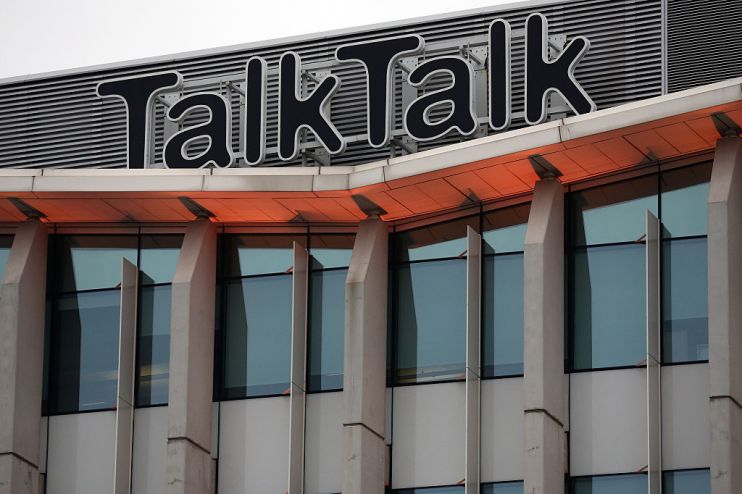TalkTalk: Will a go-private deal ring the changes for the troubled telecoms firm?

TalkTalk announced earlier today it had received a takeover bid from investment management firm Toscafund. The offer paves the way for a go-private deal for the London-based telecoms group.
Investors reacted positively to the news, with shares in the company rising more than 19 per cent.
The bid came as little surprise to analysts, who have long identified TalkTalk as a target ripe for a takeover.
But as convergence continues to dominate the cut-throat telecoms market and rival operators lurk, what could be next for Talk Talk?
Bargain hunting
Telecoms watchers expressed little surprise at the takeover discussions, as TalkTalk has long been subject to speculation over further mergers and acquisitions in the sector.
In fact, it’s not even the first approach made by Toscafund, which already owns just almost 30 per cent of the company.
The London-based investment manager – led by City ‘Rottweiler’ Martin Hughes – reportedly tabled an offer of 135p per share last year, but this was rejected by the company.
At 97p per share, the latest offer values TalkTalk at roughly £1.1bn, and marks a significant step down from the hedge fund’s previous approach.
One potential stumbling block could be chairman Sir Charles Dunstone, who owns almost 30 per cent of the company. Toscafund’s offer is conditional on his support.
Ringing up the rivals
If Toscafund is anticipating a clear run on the broadband provider, its hopes could be dashed by hungry rivals.
Consolidation has been rife across the telecoms industry with providers looking to offer converged service across mobile, broadband and TV in an increasingly competitive market.
According to Kester Mann, director of consumer and connectivity at CCS Insight, mobile operator Three would be a likely suitor.
“Its new chief executive has expressed a lot of recent interest in doing a deal and has talked up the benefits of consolidating,” he said.
“Both Three and TalkTalk have a similar challenger mentality and it could help Three get a foot in the enterprise door, which it now seems keen to go after,” Mann added.
A tie-up would also mark a response to similar moves elsewhere in the industry, such as BT’s takeover of EE and, more recently, O2’s proposed £31bn merger with Virgin Media.
Matthew Howett, principal analyst at Assembly Research, agreed that a rival bid could be in the pipeline.
“I think the low price is likely to attract other interest, and we can’t discount Three potentially being interested given recent comments and the wider market move towards convergence,” he said.
Mann added that a tie-up between Three and TalkTalk would instantly create a strong presence across the home broadband and mobile markets.
“There may be some overlap in customers, but plenty of opportunity for cross-selling would remain. Crucially, with the UK market for converged services heavily focussed on the premium end, there’s a sizeable market to target with lower-priced bundles.”
Time to hit refresh?
The takeover discussions come at a critical time for TalkTalk, which has suffered a torrid few years following a major cyber attack in 2015 and consistently poor ratings for its customer service.
“It’s sad to see what has become of the brand, which once had the lower end of the market sewn up,” Howett said.
The company’s woes have been deepened by its links to former chief executive Dido Harding, who now heads up the government’s troubled Test and Trace scheme.
“She’s become something of a toxic association for them during the course of the pandemic and failings with track and trace, and the company mentioned whenever something has gone wrong there,” Howett added.
For some observers, a move to new ownership would enable Talk Talk to make a fresh start.
Telecoms analyst Paolo Pescatore was more forgiving to the troubled brand, stating that recent cost savings had helped get the company back on track.
“This, coupled with continued growth in fibre, has helped deliver a modest set of results,” he said.
But he warned that focusing only on full-fibre was “not a winning formula”.
“While a takeover might be positive in the short term, there are numerous challenges to overcome in order to be successful for the future.”